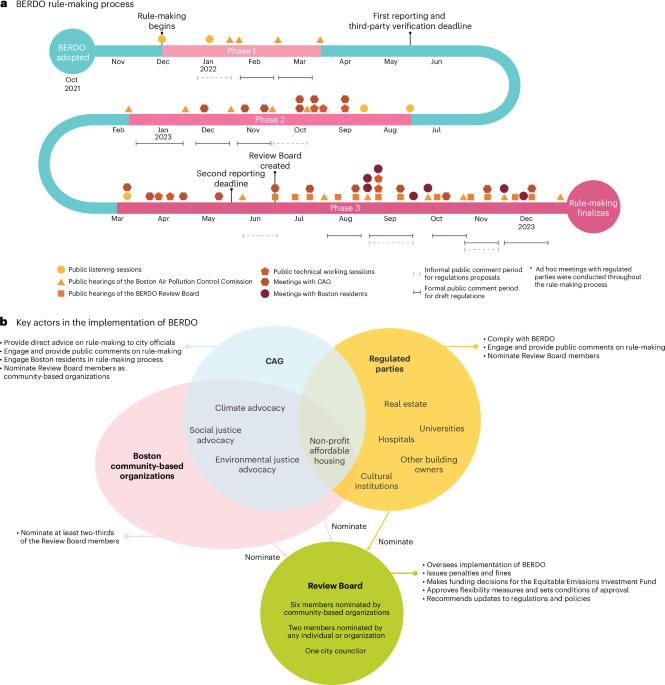Operationalizing climate justice in the implementation of Boston’s Building Performance Standard
引用次数: 0
Abstract
Cities are moving toward the implementation of more just urban climate actions, but the politics and processes of operationalizing climate justice in practice remain understudied. Here we examine the implementation of climate justice through Boston’s Building Emissions Reduction and Disclosure Ordinance (BERDO), a landmark Building Performance Standard that reflects a transformative shift towards carbon neutrality in cities. We utilize a rich mixed-methods research design that is rooted in 5 months of participant observation within the City of Boston’s Environment Department, 20 expert interviews and a systematic content analysis of hundreds of policy documents. We find that implementing BERDO entails political contestation over differing conceptions of resistance and power relations around climate justice. Justice becomes subject to scope and scale discrepancies, the processes of bureaucratization and even weaponization. In documenting these tensions, we provide insights into the complex challenges that cities may face as they begin to operationalize climate justice on the ground. City governments are moving to integrate justice and equity concerns into climate action. Diezmartínez et al. demonstrate that contestations about the politics of climate justice were central during the first 2 years of implementation for a Boston building decarbonization policy, highlighting important challenges in translating climate justice into practice. Nature Cities is proud that this robust work is our first fully qualitative methods study.

在波士顿建筑性能标准的实施过程中落实气候正义
城市正朝着实施更加公正的城市气候行动迈进,但在实践中实现气候公正的政治和过程仍未得到充分研究。在此,我们通过波士顿的《建筑减排和信息披露条例》(BERDO)来研究气候正义的实施情况,该条例是一项具有里程碑意义的建筑性能标准,反映了城市向碳中和的转变。我们采用了丰富的混合方法研究设计,在波士顿市环境部门进行了为期 5 个月的参与观察、20 次专家访谈,并对数百份政策文件进行了系统的内容分析。我们发现,在实施《波士顿环境与发展法案》的过程中,围绕气候正义的不同抵制概念和权力关系引发了政治争论。正义受到范围和规模差异、官僚化进程甚至武器化的影响。在记录这些紧张关系的过程中,我们深入了解了城市在开始实际操作气候正义时可能面临的复杂挑战。城市政府正着手将正义和公平问题纳入气候行动。Diezmartínez 等人的研究表明,在波士顿建筑脱碳政策实施的头两年中,有关气候正义政治的争论是核心问题,这凸显了将气候正义转化为实践的重要挑战。自然城市 "非常自豪,因为这是我们第一项完全采用定性方法的研究。
本文章由计算机程序翻译,如有差异,请以英文原文为准。
求助全文
约1分钟内获得全文
求助全文

 求助内容:
求助内容: 应助结果提醒方式:
应助结果提醒方式:


